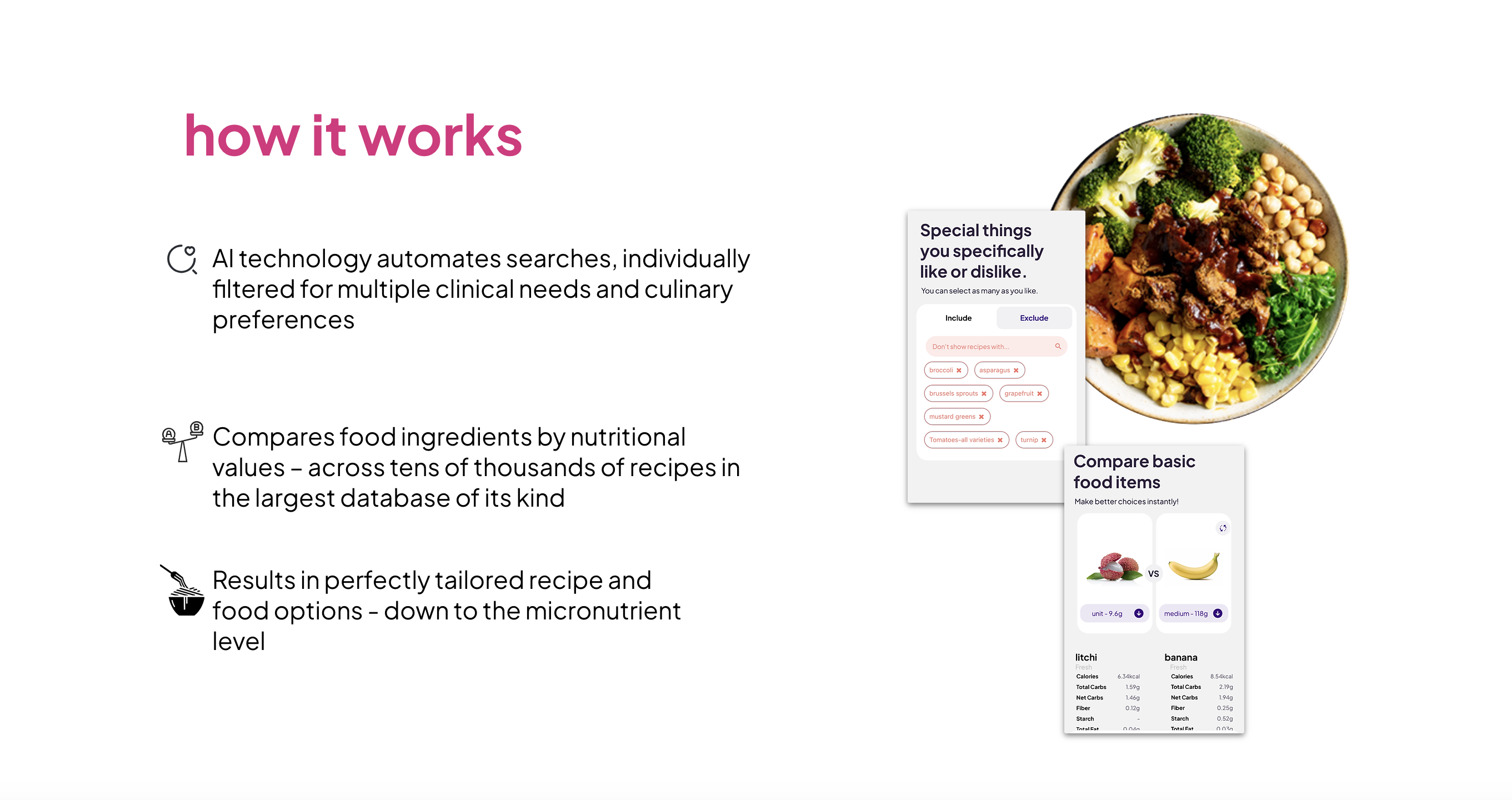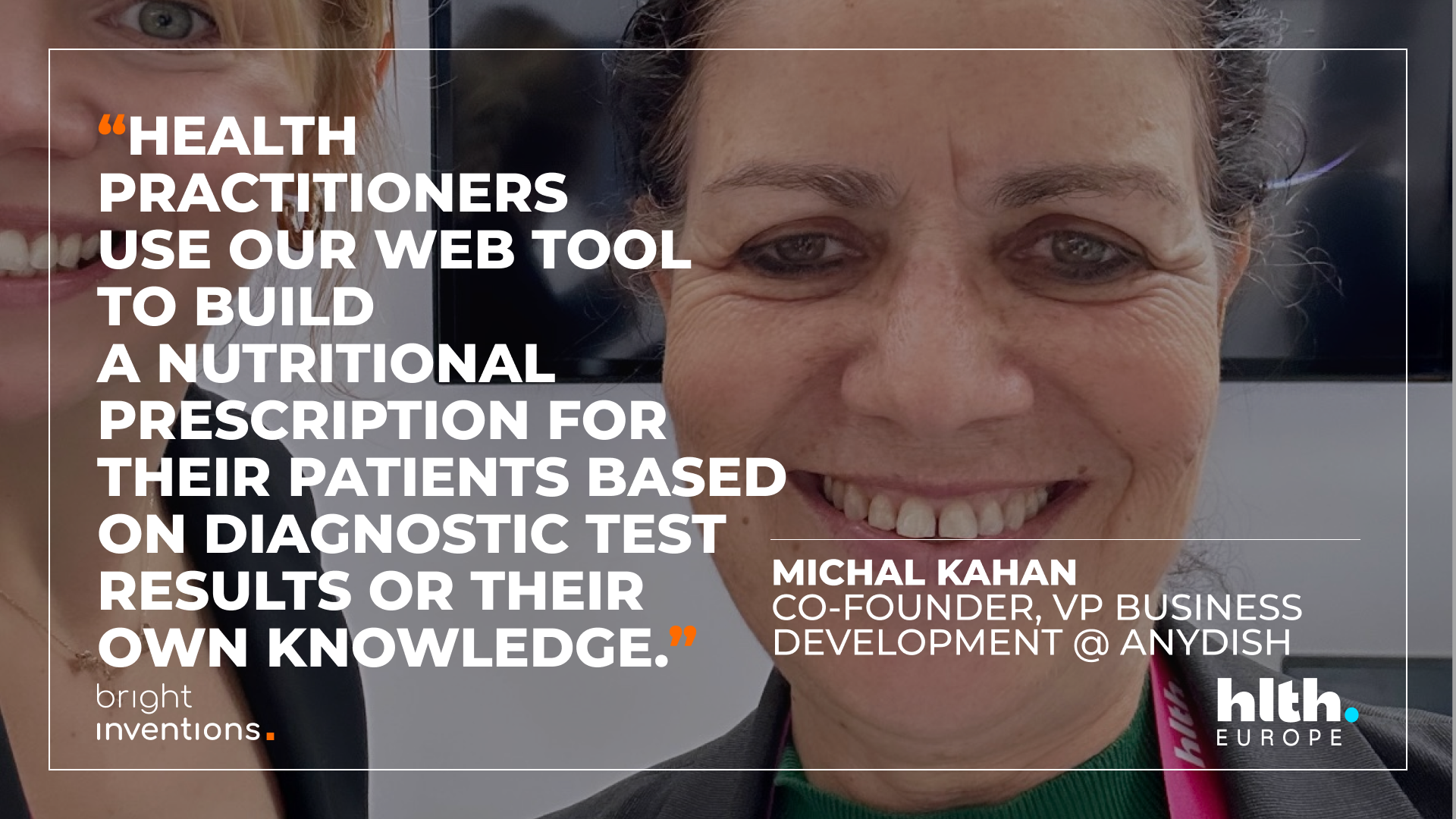Tailored Nutrition Solutions: The Anydish Healthcare App
At the HLTH Conference in Amsterdam this June, Agata Bielówka spoke with Michal Kahan, founder of anydish, about their innovative solution for health practitioners. Michal explained how the anydish app simplifies the use of disease-specific nutritional protocols, offering customizable, time-saving tools for healthcare professionals.
A recent update to the platform includes a protocol tailored for patients on weight loss medications like Ozempic and Wegovy, addressing side effects such as unintended loss of lean body mass and essential vitamins. Kahan also shared insights into their technology, the challenges they face, and the trends driving personalized nutrition in healthcare.
Can you briefly describe yourself and your solution?
Our solution is for health providers. Health providers could be physicians, functional medicine practitioners, dieticians, or nutritional doctors or therapists. When they see a patient, review diagnostic test results, and consider complex medical situations, it becomes difficult to provide a truly personalized solution, especially when it comes to recipes and nutrition plans.
Our solution helps both the health practitioner and the patient.
How does it work?
We have an AI that takes any online recipe from websites about healthy lifestyle, analyzes it, and indexes it by nutritional values and other criteria. Health practitioners use our web tool to build a nutritional prescription for their patients based on diagnostic test results or their own knowledge. Patients then download an app that provides them with personalized recipes matching their profile.

source: anydish.me
Are your users mostly individuals, but payers are practitioners?
Yes, we sell to health providers who offer it to their patients. They have a dashboard to build a nutritional prescription for each patient, and the patient adds their own preferences through the app. Practitioners often bundle the anydish cost into their service and up-sell it.
Where did the idea come from?
My business partner’s daughter was diagnosed with type 1 diabetes at a late age, which was a big change for their family. She found that existing diabetes-friendly recipes were chaotic and often incorrect. That's how we realized there was a problem to solve. Our entire company believes in food as medicine.
What are the top tech challenges you faced?
Supporting additional languages is a challenge. We use AI and NLP technology, so we can't just use Google Translate. We're working on adding language models (LLM) that will help support translation to other languages, among other improvements. We also are making our solution accessible and integrating it with diagnostic tests.
What markets are you in right now?
We're in the UK, the US, and other English-speaking countries. We're planning to expand to German-speaking countries next.
How does your company ensure medical credibility and accuracy?
We don't make our own recommendations. Practitioners sign off on the patient’s profile based on diagnostic tests or their own knowledge. We translate this into actionable, real food options using our technology.

Do you have any inspirational podcasts or news sites you follow?
We always look for websites about wellness. Our company nutritionist sorts them before we analyze them. We follow trends like GLP-1 usage for diabetes and weight loss and build solutions for those cases.
What do you do in your free time?
I like sports. I swim, jog, do pilates, and yoga. I also do ceramics once a week.
What trends do you see in the health industry?
GLP-1 usage and the increase in people with multiple diseases. A proper diet complements medication and makes it work better. The health industry is undergoing a transformative shift. Technology is playing a major role, with advancements in telehealth, AI for diagnostics, and wearable health trackers.
We're also seeing a rise in personalized medicine, tailoring treatments to individual needs. Preventative care is gaining importance, including the crucial role of personalized nutrition in overall health. One specific trend I find interesting is the increasing use of GLP-1 medications for managing chronic diseases. However, managing multiple chronic conditions (multimorbidity) is another growing concern. This is where personalized nutrition can be a valuable tool. By ensuring patients receive dietary plans that complement medication and address specific needs, we can potentially enhance overall health outcomes.
I appreciate your solution. Looking forward to seeing it in Poland. Thank you for your time.
Thank you.
